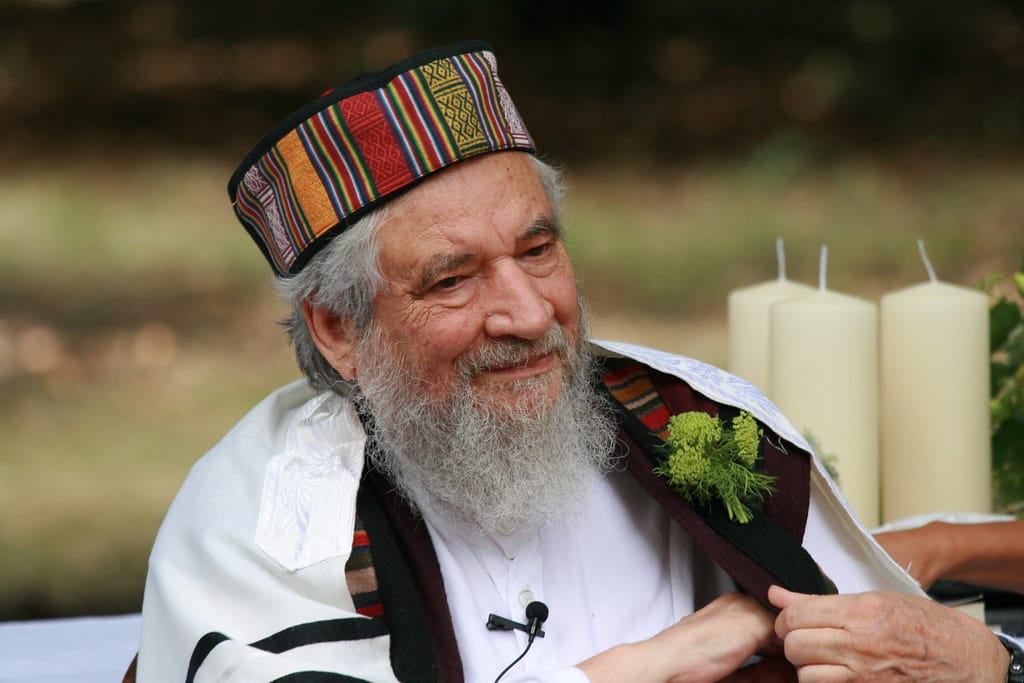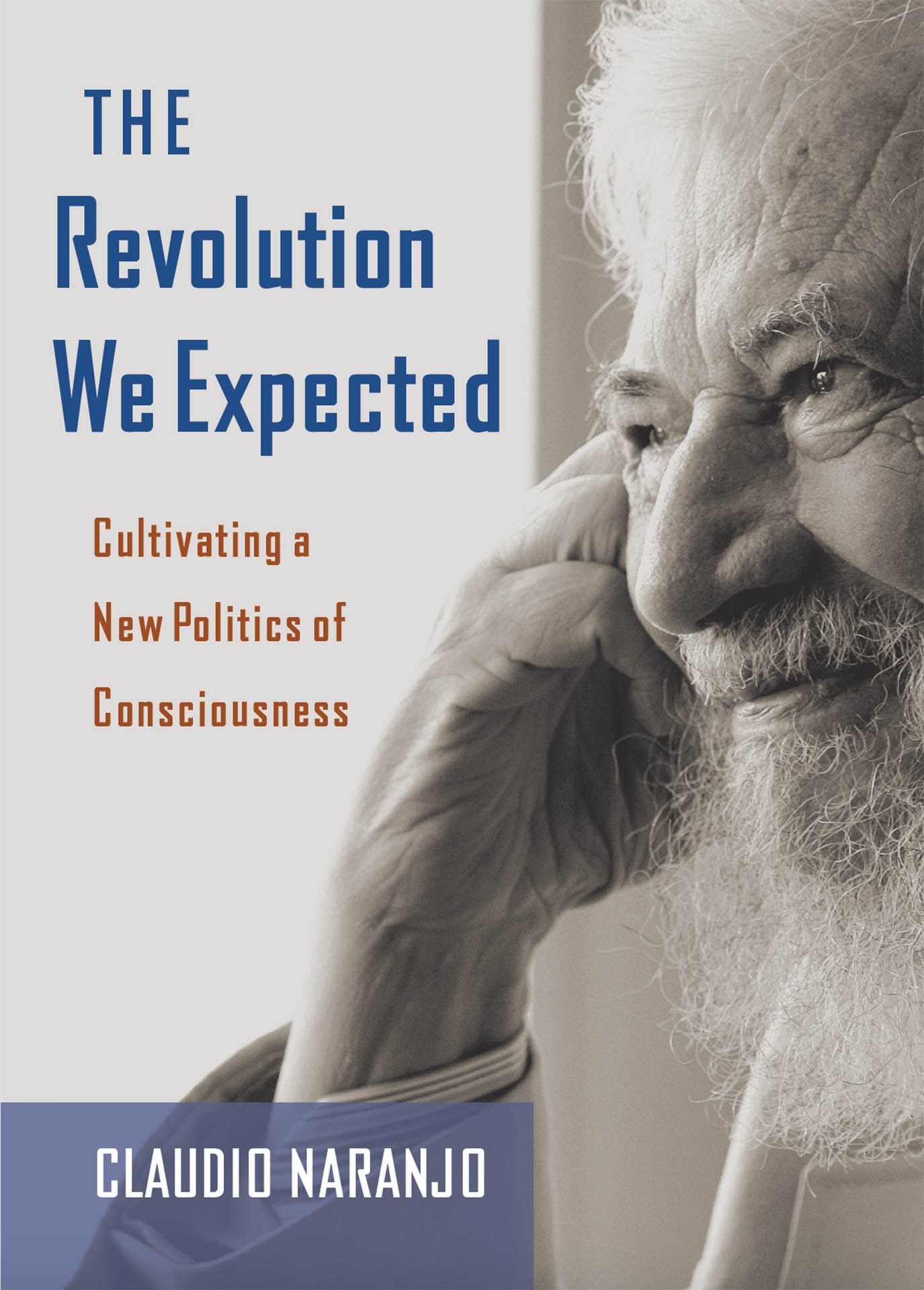Naranjo’s Last Work as an Author: The Revolution We Expected
Ours is a time of immense upheaval, transformation, and crisis characterized by the unraveling of social, psychological, and spiritual paradigms of authority. As we look around our world, we find the rapacious destruction of our environment, the troubles that come from the void of meaninglessness, and a society that displays brutal and hostile tendencies toward itself and its surroundings. However, in the dismantling of our troubled world lies the keys to a renewed vision, one that carries the tenets for life after the revolution we are living through.
The Revolution We Expected, soon to be released by Synergetic Press is Claudio Naranjo’s last work as an author, and was completed at the end of his long and pioneering life. Rich with the insight, wisdom and clarity characteristic of his work, the book is an expression of his unrelenting love for humanity as well as his deep understanding of our condition, but more than that, it is also a socio-political statement created to assist in the ongoing transformation and reconfiguration of our holistic existence. Naranjo goes well beyond his incisive diagnosis of humanity’s current crises and offers a path forward grounded on the understanding that, as he says, “only in waking from our blind somnambulism can we evolve.”
Our Sinking Ship: Patriarchal Civilization in Decline
Naranjo describes the foremost problem we face as an acute lack of awareness for ourselves, others, and our environment; a problem linked to the patriarchal domination of our collective consciousness. Our world is in fact not even aware of the blindness from which we so helplessly suffer. The catastrophes, the toils, and the evils in our world are a manifestation of our ignorance, and the increasing severity of this problem is evident in our inability to respond and offer solutions. In the 21st century, this ignorance is prevalent regardless of the contemporary obsession with information and the abundance of data available to us. Beyond these vast resources (touted as impressive harbingers for a future filled with progress), we are beset by the utter scarcity of real wisdom.
Many of the great spiritual traditions from around the world have referred to our collective condition as a kind of unawareness which Naranjo identifies in his wide-ranging survey as the root of our most critical failings. He describes the origins of our crisis as stemming from what he calls “a degradation of awareness and a process of dehumanization that has accompanied our civilization process.” Furthermore, he associates our patterns of violence, insensitivity, and greed with the neglect of “maternal empathy and bodily, animal wisdom.” By imposing a tyrannical authority over the maternal (love) and the filial (instinct) aspects of our world, the paternal figure has prevented the integration of our consciousness which in turn has produced hostile and vindictive behavior.
Re-humanization through Self-Awareness
The processes of education are an important thread running through the content of Naranjo’s work. But education for Naranjo is more than a critical component in the causes of our society’s ills, it is also a way for us to reformulate our consciousness.
In a powerful passage, Naranjo describes how “nothing strikes (him) as more important in the pursuit of rehumanizing society than rehumanizing education.” He goes on to explain lucidly how although there have been recent trends that speak gratuitously of the importance of “emotional education”, a true examination of the patriarchal principles which dominate our conception of education has not yet taken place within today’s educational institutions.
The reluctance of these institutions to accept the role of the psychological and emotional components in a human’s development have been even more detrimental due to the absence of concepts like empathy, care, and love in their discourse. Naranjo believes that there is a fundamental conflict within our society because it establishes a hegemony based on the patriarchal mind which prevents us from being more loving. In order to develop this characteristic “…we must first learn to love ourselves and to do so, in turn, we must understand the extent to which we reject, disdain, push, and mistreat ourselves, without knowing it.”
Toward a Global Consciousness
Despite the circumstances of utmost difficulty which we find ourselves in, we are undergoing what Naranjo characterizes as a “revolution of consciousness”; a renewal of awareness. Although the world of politics, economics, and media is filled with examples of humanity’s challenges, there is movement beneath the surface of our society. The expanding interest in modalities through which we might reclaim our responsibility for ourselves and our world can lead to a society “richer in love”, aware of the need for individual human development. Naranjo’s book – as well as his generous catalog of work – is filled with an energy that invites us to awaken our own zeal for a better world, one that heals the blatant dysfunction and illness that permeates our present.
More About the Book: The Revolution We Expected: Cultivating a New Politics of Consciousness
Celebrated psychotherapist Claudio Naranjo‘s last work as an author makes a final call to humanity to awaken to our collective potential and work to transcend our patriarchal past and present in order to build a new world. This book argues not only for a collective individual awakening, but a concerted effort to transform our institutions so that they are in service to a better world. Naranjo targets our traditional education and global economic systems that increasingly neglect human development and must transform to meet the needs of future social evolution. Ultimately, he says, we need to embark on a collective process of rehumanizing our systems and establishing self-awareness as individuals to create the necessary global consciousness to realize a new path forward; stressing the need for education to teach wisdom over knowledge, and utilizing meditation and contemplative practices to form new ways to educate, and be educated.
Photo Credit: Marco

